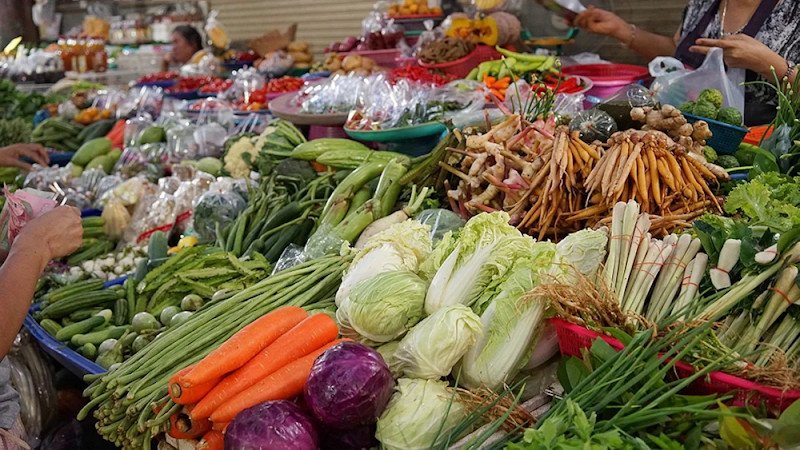UO study will test microbes on produce from gardens vs. stores

EUGENE, Ore. (KTVZ) -- The journey that your fruits and veggies take to get to your plate might affect the beneficial microbes they bring you.
New University of Oregon research will investigate how microbes found on produce affect the gut microbiome and compare how those microbes differ between produce from a home garden versus those from the supermarket.
The project is led by Gwynne Mhuireach, a research assistant professor in the Institute for Health in the Built Environment at the UO’s Portland campus. Her pilot study is supported by a grant from the United States Department of Agriculture.
People take in millions of microbes every day via the food they eat. While some microbes can cause disease, many others are beneficial, and even necessary, for health.
But previous studies suggest that they’ve lost most of the microbes they started with by the time they reach a consumer’s kitchen.
“The veggies you get in the supermarket have been through so much on their supply chain processing,” Mhuireach said. “But then they also have new microbes from being handled and being in storage.”
Produce from a backyard garden or a community garden is also filled with microbes, but their journey from plant to plate is much shorter, and the environment in which they’re grown is different too. Those fruits and vegetables are more likely to be surrounded by a variety of other plants, for example, rather than grown in vast monoculture fields.
“I want to see if there’s a vast difference, microbiologically speaking, between garden and supermarket veggies,” Mhuireach said.
And she wants to see whether those microbial differences can in turn affect people’s gut microbiomes.
Each participant will spend a week eating produce only from their own garden or a community garden and another week eating a similar meal plan but with only supermarket produce. They’ll collect daily fecal samples, which Mhuireach and her team will submit for genetic sequencing to identify the microbes within. That will allow the researchers to track how the gut microbiome is changing over time in response to different diets.
Depending on the preliminary results, Mhuireach hopes to expand to a larger sample. Her team is currently recruiting participants for the study. Interested participants can learn more about the study and find a link to the eligibility screening survey online.